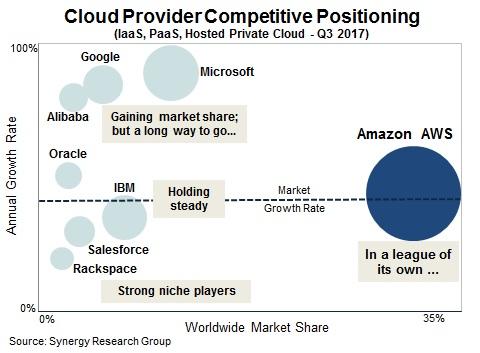IaaS != SaaS
AWS continues to rule the cloud infrastructure market | TechCrunch
"John Dinsdale from Synergy Research, an analyst firm that tracks cloud market share across the different types, says you have to be careful to separate out that SaaS business when measuring market share. His company found that AWS continues to control 35 percent of the market and that its challengers continue to trail far behind when it comes to infrastructure, which they define to include infrastructure, platform and hosted private cloud services.
“This stream of research is focused on cloud infrastructure services (or cloud computing), so it covers IaaS, PaaS and hosted private cloud services. It does not cover SaaS (we do that in a different set of numbers).The majority of what is included in Microsoft’s cloud numbers is software/SaaS. Microsoft is the leader in the SaaS market by a big margin,” Dinsdale told TechCrunch, but it trails dramatically when it comes infrastructure."
AWS continues to rule the cloud infrastructure market | TechCrunch

/cdn.vox-cdn.com/uploads/chorus_asset/file/9513305/facebook_microsoft_01.png)
